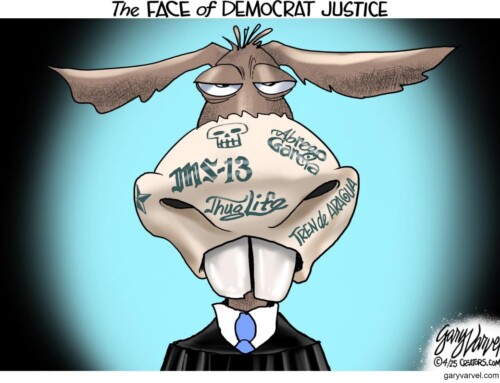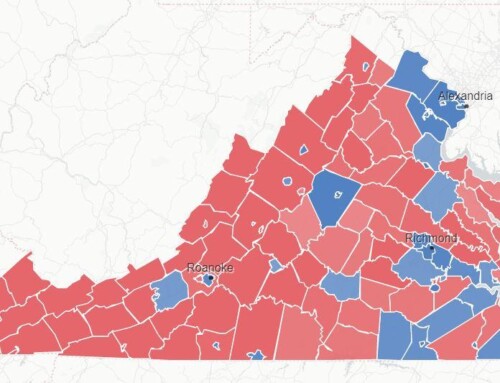Why does the Post Office have a program that tracks social media? We hear that they also scan the envelope of every piece of mail and maintain that information. Is there a super computer anywhere that can aggregate this information to identify patterns that could be a threat????
What the US Post office says in its statement:
The U.S. Postal Inspection Service is the primary law enforcement, crime prevention, and security arm of the U.S. Postal Service. As such, the U.S. Postal Inspection Service has federal law enforcement officers, Postal Inspectors, who enforce approximately 200 federal laws to achieve the agency’s mission: protect the U.S. Postal Service and its employees, infrastructure, and customers (note: everyone in the United States covered by this description!); enforce the laws that defend the nation’s mail system from illegal or dangerous use; and ensure public trust in the mail.
The Internet Covert Operations Program is a function within the U.S. Postal Inspection Service, which assesses threats to Postal Service employees and its infrastructure by monitoring publicly available open source information.
Additionally, the Inspection Service collaborates with federal, state, and local law enforcement agencies to proactively identify and assess potential threats to the Postal Service, its employees and customers, and its overall mail processing and transportation network. In order to preserve operational effectiveness, the U.S. Postal Inspection Service does not discuss its protocols, investigative methods, or tools.
On January 11, bulletins went out from the USPIS to law enforcement agencies on how to retrieve deleted social media posts. The documents point to potential gaps in the Jan. 6 Select Committee’s investigation by revealing concerns about a company it was not known to be scrutinizing. And those documents point to a new challenge for law enforcement in the post-Jan. 6 era: how to track extremist organizing across a host of low-profile platforms. The USPIS program appeared to be used to assess threats and obtain information regarding past cases of extremism or the documented plans of potential future extremist activity.
OK, folks, who is being called extremist? Whenever the term Extremist is used in the news, it invariably defaults to Right Wing Extremists. Guess who those folks are! Anyone who:
- Voted for Trump
- Believes in traditional marriage
- Believes that abortion kills a living human being
- Follows biblical teachings
- Identifies as a Patriot
- In general, is a Conservative.
Look who is included in the “extremist files” of the SPLC:
- Jewish Defense League
- American Family Association
- Family Research Council
- Liberty Counsel
- Alliance Defending Freedom
- Family Watch International
- American College of Pediatricians
- The Remembrance Project
- ACT for America
- Center for Immigration Studies
- Federation for American Immigration Reform
- National Liberty Alliance
Yahoo News ran a report on the USPIS Program April 21, 2021. read here
Here are some relevant sections:
The details of the surveillance effort, known as iCOP, or Internet Covert Operations Program, have not previously been made public. The work involves having analysts trawl through social media sites to look for what the document describes as “inflammatory” postings and then sharing that information across government agencies.
“Analysts with the United States Postal Inspection Service (USPIS) Internet Covert Operations Program (iCOP) monitored significant activity regarding planned protests occurring internationally and domestically on March 20, 2021,” says the March 16 government bulletin, marked as “law enforcement sensitive” and distributed through the Department of Homeland Security’s fusion centers. “Locations and times have been identified for these protests, which are being distributed online across multiple social media platforms, to include right-wing leaning Parler and Telegram accounts.”
A number of groups were expected to gather in cities around the globe on March 20 as part of a World Wide Rally for Freedom and Democracy, to protest everything from lockdown measures to 5G. “Parler users have commented about their intent to use the rallies to engage in violence. Image 3 on the right is a screenshot from Parler indicating two users discussing the event as an opportunity to engage in a ‘fight’ and to ‘do serious damage,’” says the bulletin.
“No intelligence is available to suggest the legitimacy of these threats,” it adds.
“iCOP analysts are currently monitoring these social media channels for any potential threats stemming from the scheduled protests and will disseminate intelligence updates as needed,” the bulletin says.
The government’s monitoring of Americans’ social media is the subject of ongoing debate inside and outside government, particularly in recent months, following a rise in domestic unrest. While posts on platforms such as Facebook and Parler have allowed law enforcement to track down and arrest rioters who assaulted the Capitol on Jan. 6, such data collection has also sparked concerns about the government surveilling peaceful protesters or those engaged in protected First Amendment activities.
“It’s a mystery,” said University of Chicago law professor Geoffrey Stone, whom President Barack Obama appointed to review the National Security Agency’s bulk data collection in the wake of the Edward Snowden leaks. “I don’t understand why the government would go to the Postal Service for examining the internet for security issues.”
“This seems a little bizarre,” agreed Rachel Levinson-Waldman, deputy director of the Brennan Center for Justice’s liberty and national security program. “Based on the very minimal information that’s available online, it appears that [iCOP] is meant to root out misuse of the postal system by online actors, which doesn’t seem to encompass what’s going on here. It’s not at all clear why their mandate would include monitoring of social media that’s unrelated to use of the postal system.” Levinson-Waldman also questioned the legal authority of the Postal Service to monitor social media activity. “If the individuals they’re monitoring are carrying out or planning criminal activity, that should be the purview of the FBI,” she said. “If they’re simply engaging in lawfully protected speech, even if it’s odious or objectionable, then monitoring them on that basis raises serious constitutional concerns.”
If you go to USPIS and read how they are bragging about apprehending opioid traffickers, you will find the following:
USPIS Cyber and Analytics group combines sophisticated technology to predict patterns and discover insights. These models allow us to crunch huge data sets with more accuracy, and rapidly boost seizure rates – even when offenders develop new tactics.
To enhance our targeting efforts, we’ve linked our local, national, and international partners as well as standardized our tracking technologies. This enables us to share real-time data with the Drug Enforcement Agency (DEA), the Organized Crime Drug Enforcement Task Force (OCDETF) Fusion Center, and the U.S. Customs and Border Protection (CBP).
USPIS is working with CBP and foreign postal operators to ensure Advance Electronic Data inside barcodes is on all inbound mail. The detailed information in AED, like full names and addresses, weight, date, and more can be instantly captured in both outgoing and incoming processing centers. Better data means quicker interceptions.
New high-tech analyzers help USPIS field divisions quickly and safely scan for unknown and illegal drugs, like fentanyl. Now inspectors can test over 300 illicit substances without needing to open containers or plastic bags.
USPIS operates its own world-class National Forensic Laboratory with some of the best forensic scientists and analysts in the field. Every day, they examine a myriad of evidence from fingerprints and DNA to narcotics and dark web activity. Annually, these specialists examine around 275,000 items, identifying an average of 900 suspects.
Suspicious Mail: The Postal Inspection Service is specially trained to respond to suspicious mailings, including suspicious substances, suspicious items, and suspected explosive devices. We also conduct rigorous investigations into threatening communications to government officials, religious organizations, foreign embassies, news media, and other targeted individuals and groups.
But wait, it gets worse:
A report from Just The News in February ‘22: “Postal Service hacking into hundreds of seized mobile devices, tracking users’ social media posts.”
USPIS posted in 2020: “FLS (Forensic Laboratory Services) remains focused on technological advancement, as demonstrated by the procurement and/or development of new equipment, hardware, and software to support Inspection Service investigations. The Cellebrite Premium and GrayKey tools acquired in FY 2019 and 2018 allow the Digital Evidence Unit to extract previously unattainable information from seized mobile devices. During FY 2020, 331 devices were processed, and 242 were unlocked and/or extracted by these services. The success of the program and ever-increasing demand for services required the purchase this year of a second GrayKey device for use on the East Coast.”
Per the USPIS’s own website: “ The Inspection Service doesn’t just secure the physical mail, postal employees and infrastructure; we also use technology to better utilize Postal Service systems to monitor the mail and deploy other resources throughout the country to help expand the agency’s connection to the postal network. The Postal Service is considered critical infrastructure by the Department of Homeland Security, Cybersecurity & Infrastructure Security Agency (CISA). Postal Inspectors, working alongside the USPS Corporate Information Security Office, provide protection to the USPS network and the USPS.com website by monitoring threats and responding to cyber incidents. The Inspection Service also has its own cybercrime unit that is prepared to defend against potential attempts by foreign actors to infiltrate the postal network.”
In summary: If you have an address, you are subject to scrutiny. If you have ANY social media, it can be reviewed. If you have a cell phone, its contents can be retrieved, including your location at any given time. If you are seen as a threat to the status quo, there is a network, partially hidden, that will watch what you say and what you do.
Paranoid yet????





